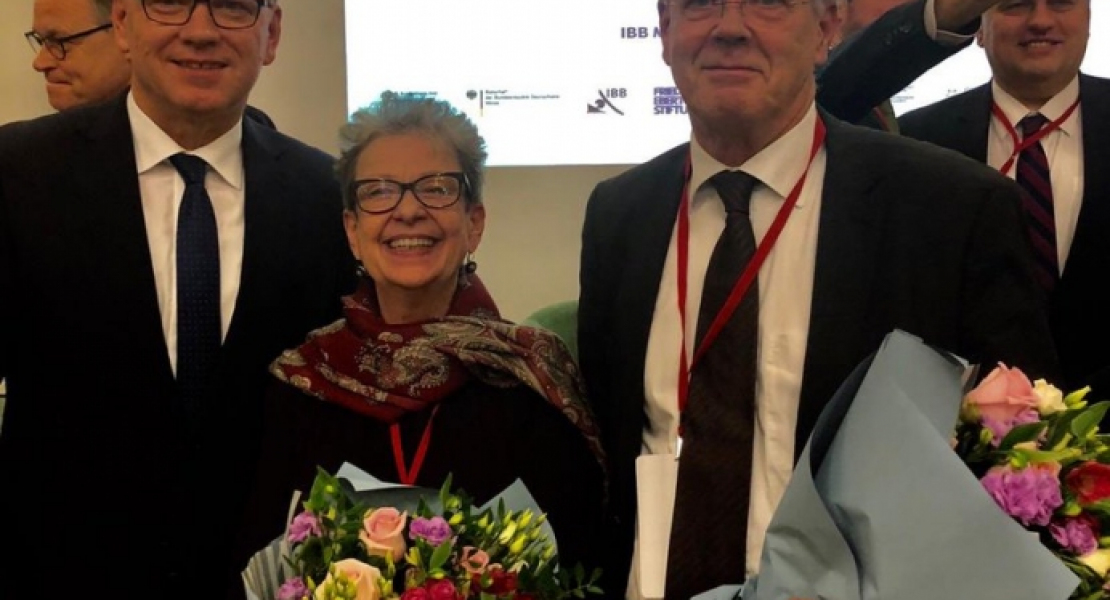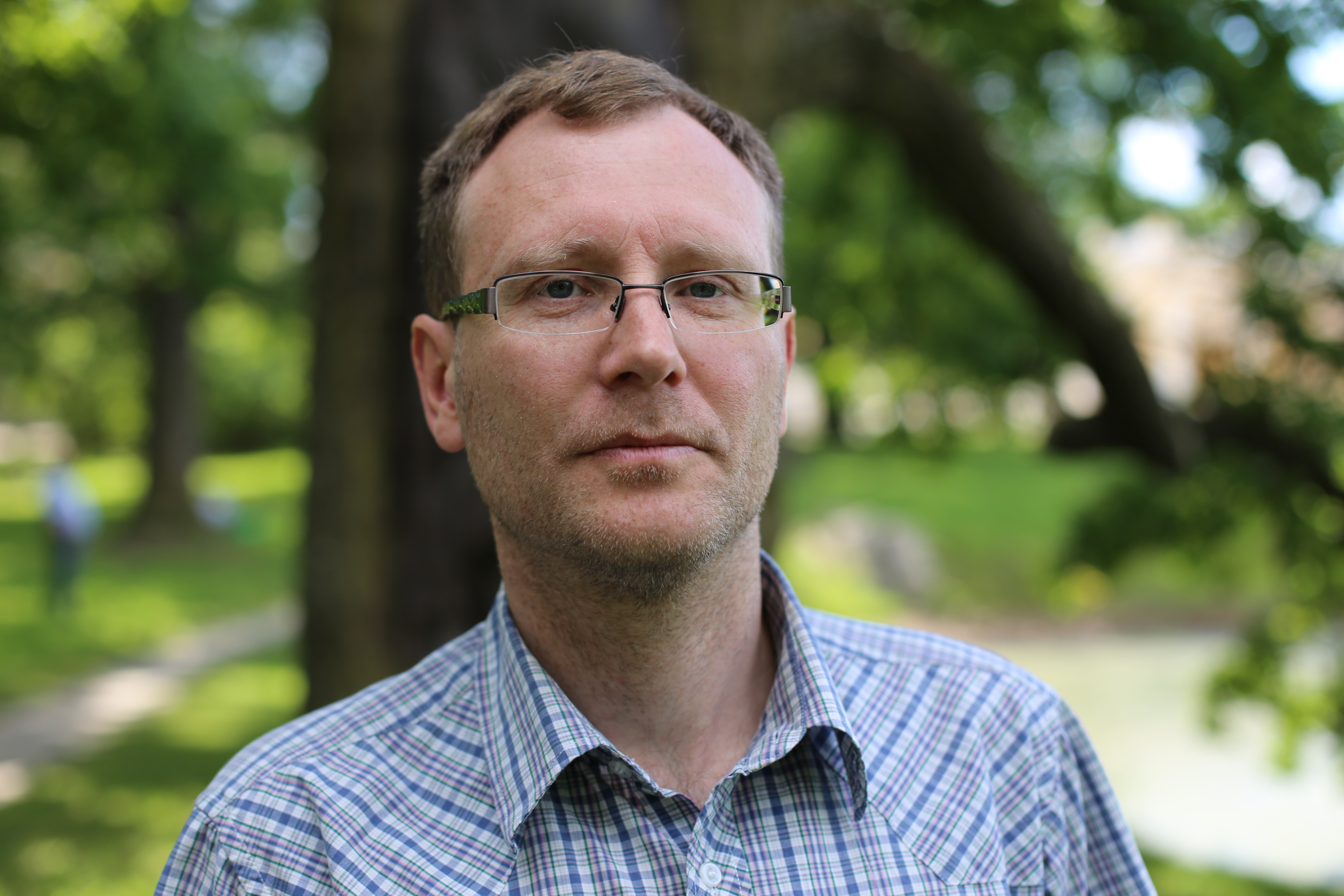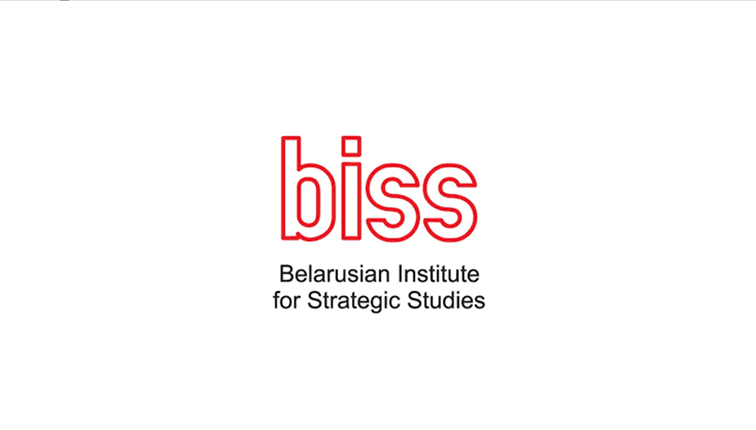photo: DW
Like in 2016 and 2017, this year the conciliatory rhetoric prevailed both among the representatives of the German side and those of the Belarusian side.
Minsk Forum was held on the 22-24 of November 2018: an event that is organized in Belarus since 1997 (with a break in 2011 - 2015) and is primarily a platform for discussion of the German-Belarusian cooperation. This year the forum was attended by more than 300 participants from 20 countries. The main topics were digitization, economic transformation, investment, e-government and the interaction between the centre and the regions.
Among others the forum was attended by German Ambassador to Belarus Peter Dettmar, chairman of the EU Delegation to Belarus Andrea Victorin, Deputy Foreign Minister of Belarus Oleg Kravchenko and representatives of the German Bundestag. The European side was presented in the amount of more than 30 official representatives of the political elite, and the Belarusian side - no more than 10. The event was covered in the Belarusian media, including the state ones, but not as wide as past year, when the forum was held in the glory of the 20 anniversary since the start of the initiative.
Commentary
- This year, the Minsk Forum was the sixteenth since its start in 1997 and the third after a long interval 2011 - 2015, when, in connection with the brutal suppression of protests after the 2010 presidential elections the Belarusian-German Society had decided to suspend the organized forums in Belarus. Similarly, as in 2016 and 2017, this year the conciliatory rhetoric dominated between the representatives of the German side as well as between those of the Belarusian government. This in turn fits into the broader context of rapprochement between the official Minsk and Western political centres, the constant element of which is to stress that Belarus is a 'stability donor' and 'negotiating platform' in the region.
- Nevertheless, the forum was also the site of raising a number of problematic issues. During the panels dedicated to the socio-political sphere the matter of the death penalty, questions of human rights and the relationship between business and government agencies were touched on. Regarding to the first question, the press secretary of the Belarusian Ministry of Foreign Affairs Anatoly Glaz repeated the standard argument ad populum: the majority of the Belarusians voted for the preservation of the institute of the death penalty during the 1996 referendum. The human rights issue was not in any way reacted by the Belarusian officialdom, even when one of the representatives of human rights organizations brought up facts of unfounded imprisonment of businesspersons with the (probable) goal of taking away their business, or to obtain a bribe.
- Even in the case of raising less politicized issues on the forum, there was no one representative of the Belarusian authorities who could meaningfully respond to the problematic issues. For example, co-chairman of the German-Belarusian Business Council and Director of the 'Public Relations in Eastern Europe' REMONDIS SE Felix Zimmerman touched upon the problem of incredibly long periods of idle freight trains at the border in Brest. There turns out a tragicomic situation because of these delays: it takes only 5 days for a train to make the distance from China to Belarus (about 7.5 thousand km.) and as many as 9 days to get from Belarus to Germany (about 800 km). Professor Rainer Lindner as the moderator appealed to the Belarusian side on the issue, asking whether the Belarusians did not fear that this situation would spoil the good image of Belarus as a transit route and that Belarus might lose such a profitable user of Belarusian roads. In the hall there was no one who would give any comment on the behalf of the state. After enduring an appropriate pause, Lindner had to seek an answer from Mr. Zimmermann, who reassured everybody with a diplomatic statement about the inevitability of the Belarusian transit, no matter how troublesome it is.
- Tne novely of Minsk Forum XVI was the theme of digitization. And it should be seen not only in the narrow sense of the IT-industry, but also as a symbol of inevitable progress, which changes Belarus. At the round table 'Culture of 4.0 on the way to the future', experts illustrated how it worked in the case of cultural policy. The state has to 'self-limit' and not meddle with what it does not understand (in particular, the Code 'On culture' does not contain any references to the digitization). There is a negative side in it, which drew the attention of the chairman of Foundation 'Cultural Heritage and Modernity' Alla Stashkevich: certain protective rules and integrative approach are lost. But there is alos a kind of a chance. According to art historian Alexander Zimenko, this situation leaves more room for freedom and creativity and it 'is not marked with the state by the digital binary code 1 - 0, black - white'. Digitization brings similar changes to other areas, too. Social networks changed the politics as a channel of communication and (self-) organization. The digital economy is splashing out of the High-Tech Park, although Decree No 8 tries to hold it within the cosy virtual walls of special conditions and the English law. IT is changing the traditional economy. Public administration acquires direct digital communication with citizens through the platform 115.bel and gradually reaches the level of processing Big Data. Minsk Forum was a good opportunity to see the far-reaching 'side effect' of IT progress in Belarus.




